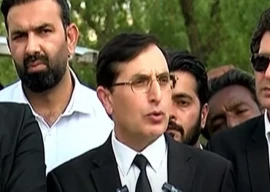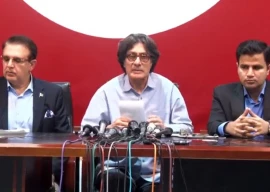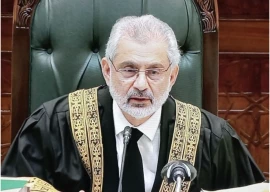
After four years of expansionary fiscal policy, resource constraints are beginning to bite, according to Standard Chartered Bank Pakistan’s economist Sayem Ali.
In a recently published report on the Federal Budget 2011-12, Ali said that “the government’s record on budget targets inspires little confidence: in the last four years every tax and spending target has been missed.”
Furthermore, he says that “a closer look at the FY12 budget measures indicates to us that there is a real risk that the targets will be missed once again, with the fiscal deficit likely to stay high at 5% of GDP.”
The government targets 4.2% growth in FY12, from 2.4% in FY11. Higher reconstruction spending in flood-affected areas and higher investment spending in the energy and transport infrastructure will accelerate growth.
The report said that even though the government targets a reduction in inflation to 12% in FY12, from 14.5% in FY11, and to achieve this, it has reduced the general sales tax from 17% to 16% and has promised to stop printing money for deficit financing, the announcement to sharply reduce subsidies from 2.2% of the GDP to 0.8%, is likely going to push inflation in the short term.
Similarly, food subsidies on the procurement, import and sale of essential food items has been slashed as the government limits its intervention in the markets, which though a positive sign, is likely to lead to an increase in the prices of sugar, wheat and rice.
The FY12 budget targets a decline in the fiscal deficit to 4% of GDP, from an estimated 5.7% of GDP in FY11. However, the report said, the deficit target is based on ambitious revenue targets and the premise that the provinces will generate a surplus of 0.5% of GDP in FY12, based on a higher share in the revenue pool as agreed under the 2010 National Finance Commission Award.
In FY11 the government budgeted for a provincial surplus of 1% of GDP but ended up with a deficit. The same is likely to happen in FY12, with provincial governments keen to spend ahead of the parliamentary elections due in early 2013, the report stated.
“Similarly, we think revenue targets are too ambitious and are unlikely to materialise. In our view, the deficit will exceed the government’s 4% forecast, at 5% of GDP, with higher-than-budgeted spending by provinces and lower-than-targeted tax collection”, Ali said in his report.
The economist also said that the tax target of Rs2.1 trillion seems too ambitious, since the government failed to address agricultural tax and wealth tax. Moreover, many of the excise duties and regulatory duties have been eased which will all hamper incoming revenue for the government.
He pointed out that reduction in GST by one per cent and the raising of the floor on income tax to Rs350,000 was also likely to result in significant loss for the government and therefore “the government’s revenue target of 9.3% of GDP looks highly unlikely to materialise”.
On government borrowing, the report said the government is seeking to reduce its FY12 borrowing from banks to Rs304 billion, from Rs633billion in FY11. However, there is a real risk that bank borrowing will be significantly higher due to a higher-than-targeted fiscal deficit and lower-than-targeted external financing.
External financing has slowed sharply as IFIs, including the IMF, have suspended disbursements on the sharp debt build-up and slow pace of reforms. The IFIs will not release money unless they see tangible progress on reforms outlined in the FY12 budget. In this scenario, the government’s estimates that it will raise $3.3billion in loans from IFIs look highly unlikely.
Moreover, the government has also included funding from the Kerry-Lugar Bill and privatisation- uncertain sources of steady income. Therefore pressure will remain on bank borrowing for deficit financing. “In our view, bank borrowing will remain high at Rs550 billion in FY12, and could be higher in the event of fiscal slippage, versus the FY12 budget target of Rs304 billion,” the report concluded.
Published in The Express Tribune, June 13th, 2011.












































COMMENTS (3)
Comments are moderated and generally will be posted if they are on-topic and not abusive.
For more information, please see our Comments FAQ